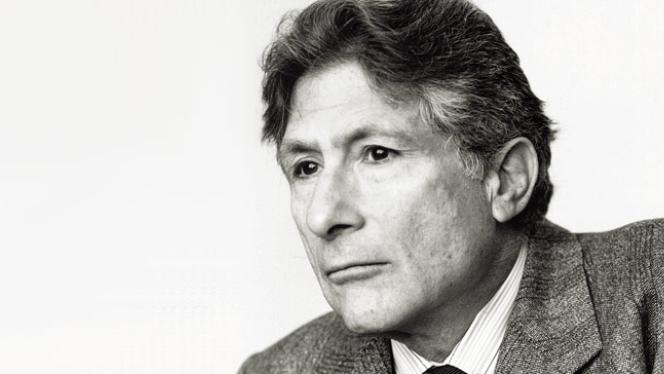Thursday 21 November 2024
Said in Somali

The translation of academic works into various languages is not a simple task; it is a crucial endeavor that pushes the boundaries of knowledge and ideas.
Edward W. Said (1935-2003) and his writings have had a lasting impact on postcolonial studies, challenging power structures and exploring the role of intellectuals in society. Said’s theory on intellectuals and their societal role holds immense relevance for Somali intellectuals and society as a whole. By making Said's work accessible in Somali, my goal is to empower Somali readers and foster a vibrant intellectual discourse within the community. This effort aims to spark enlightenment and bring about a profound transformation in Somali society. Translating Said's work into Somali also allows us to bring these critical ideas to the Somali context, enabling readers to examine their relevance in their own lives and communities. This translation seeks to create a space for dialogue and intellectual engagement within the Somali community, fostering a bold and transformative environment.
Said defines intellectuals as individuals who can analyze and question societal norms and authorities. They have the ability to challenge power structures, speak truth to them, and advocate for social change. By embracing Said's theory, Somali intellectuals can gain insights into their roles within society and the impact they can have on shaping Somali narratives.
Edward Said’s theory of intellectuals is of utmost importance in the Somali context, where intellectual discourse and critical thinking play a crucial role in the challenging task of rebuilding a nation torn apart by conflict and instability. Somali intellectuals have the power to shape public opinion, question authority, challenge harmful stereotypes, and contribute to the creation of a harmonious and prosperous society. For “the intellectual capital of a nation is sine qua non to its survival, its development and its march forward,” as the great Somali scholar Ismail Ali Ismail put forward in his significant essay, “The Intellectual Paralysis of the Educated Somalis.” However, they have historically fallen short in fulfilling their responsibilities.
Therefore, it is essential to integrate Edward Said's ideas from Representations of the Intellectual into the Somali context. By translating and adapting his work, we can disrupt the current status quo and provide aspiring Somali intellectuals with the opportunity to engage in profound discussions about this influential thinker's significant contributions. This is why I have taken on the task of adapting Said's 1994 book, Kaalinta Indheergaradka, into Somali, which was published in 2020.
Said’s framework offers a valuable perspective for analyzing Somali intellectuals and their impact on society. His beliefs about the role of intellectuals in challenging power structures and questioning dominant narratives are highly relevant in the Somali context. By applying this framework, we can gain a deeper understanding of the contributions of Somali intellectuals and the potential for societal advancement. As Abdirahman A. Hussein eloquently stated in his book on Said, the “critical mind must debate with knowledge, and wrestle with history.”
Translating heavyweight works into Somali presents numerous challenges. From technical terms that may not have direct equivalents in the Somali language to intricate sentence structures, translators must navigate a variety of linguistic obstacles. Furthermore, maintaining the integrity and academic rigor of the original text can be a delicate balancing act. Nonetheless, overcoming these challenges is essential in delivering valuable knowledge to Somali readers.
Despite the challenges, translating and sharing academic works with Somali readers brings immense rewards. It allows Somali intellectuals and youth, in particular, to engage with a wider body of knowledge, fostering intellectual growth and expanding horizons. Translating such works into Somali not only empowers Somali readers but also contributes to the enrichment of Somali intellectual discourse.
Promoting intellectual discourse in Somali society is crucial for societal progress and the development of critical thinking. By translating works like Edward Said’s into Somali, I aim to inspire discussions, challenge existing paradigms, and encourage a more robust intellectual culture within the Somali community.
I firmly believe that translating and accessing academic works in Somali is a powerful tool that empowers Somali readers by democratizing knowledge. This transformative process allows individuals who may lack fluency in foreign languages to actively engage with crucial ideas. By effectively bridging linguistic and cultural barriers and providing equal opportunities for engagement, we uplift individuals who have been marginalized by limited language proficiency. Through this, we can unlock the potential for Somali readers to actively participate in global intellectual conversations, fostering a more inclusive and diverse intellectual landscape. It is crucial to recognize the significance of translation as a means of decolonizing the mind, as Ngũgĩ wa Thiongo eloquently puts it.
Translation also plays a vital role in preserving Somali identity and heritage, while fostering a deeper understanding of Said’s theory and its application in the local context. For me, translating works into Somali is not just an intellectual exercise, but an act of reclaiming and celebrating Somali identity. It is an affirmation that Somali language and culture hold immense value and have the capacity to contribute to the global intellectual tapestry. As the great poet Günter Grass once said, “translation is that which transforms everything so that nothing changes.”
Furthermore, the translation of Said’s work into the Somali language is not merely a simple task - it is a monumental and crucial political statement. The Somali society, burdened by the enduring scars of colonialism and subsequent conflicts, has bravely fought for decolonization, cultural revival, and an ongoing battle against terror and oppression. In this context, the translation of Said's text holds immense power to empower Somali intellectuals, validating their struggles and providing new avenues to confront the lasting impacts of colonialism and authoritarianism (religious or otherwise).
By bringing Said’s theories into the Somali language, the translation process becomes a potent act of defiance against dominant narratives, effectively challenging the very roots of existing power structures. It serves as a powerful call to action, a rallying cry for the Somali people to reclaim their story and assert their own agency. It demands accountability from the faltering Somali intelligentsia and calls for a higher standard of intellectual discourse. This translation is not just a mere transfer of words - it is a transformative and revolutionary act that has the potential to reshape the Somali intellectual landscape and ignite a fire of change.
Why must we burden ourselves with translating and talking about the works about intellectuals, like Said’s? As Edward Said himself eloquently stated in the book I have translated, “because the romance, the interest, the challenge of intellectual life is to be found in dissent against the status quo at a time when the struggle on behalf of underrepresented and disadvantaged groups seems so unfairly weighted against [us].” Let us embrace the romance, the intrigue, and the intellectual challenge that comes with rebelling against the established norms. Let us rise up and defy the odds in the name of those who have been silenced and oppressed. In a world filled with turmoil and manmade cataclysmic events, such as the war in Gaza, the civil war in Sudan, the mass displacement of the Congolese people, and the crisis in Haiti, it is crucial that we unite and fight for justice. From Africa to Asia, from Americas to Europe, marginalized people are yearning for peace and, above all, their voices to be heard. This is, I think, where the wisdom of Edward Said becomes invaluable.










